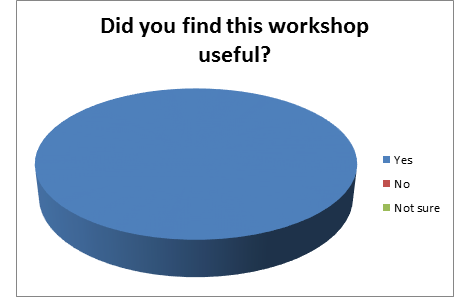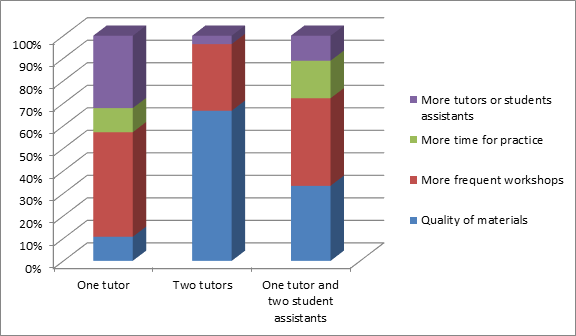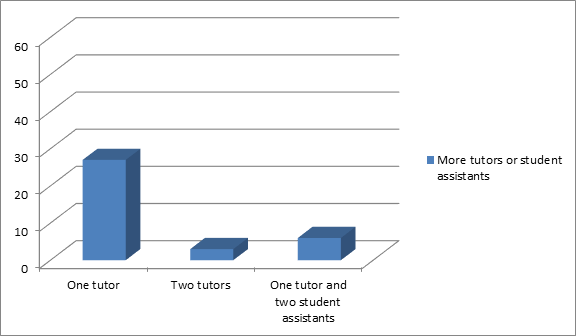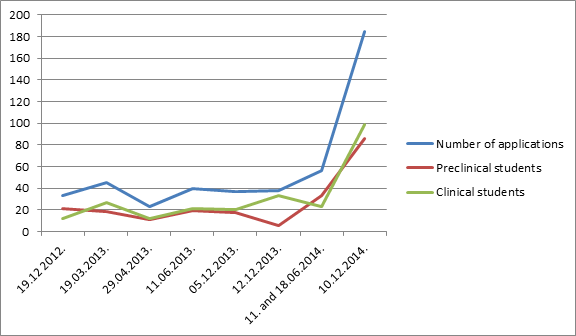


Theme
10AA Surgery
INSTITUTION
Croatian Institute for Public Health - Croatia
Medical School University of Zagreb - Croatia
School Of Health Sciences Of The Minho's University

Medical education should prepare future doctors for both practical and theoretical skills. While theoretical skills are widely available, practical skills, including surgical practical skills, are often neglected or meet low quality criteria due to deficiency of time, equipment and available tutors. Practical skills are highly needed for a graduate medical doctor, regardless of a residency programs one will enrol as they contribute to self-confidence. With our experiment we aim to assess usefullnes and satisfaction of learning surgical suturing skills through surgical suturing skills worksops on models.
In total 9 surgical suturing workshops were held for medical students of University of Zagreb School of Medicine in periodof year 2012 - 2014 enabeling total 180 medical students of preclinical and clinical years both to participate. Each workshop took 2 hours 30 minutes, and was given by at least one senior tutor of which three workshops had two tutors, three workshops had one tutor and two experienced student assistants and three workshops had only one tutor.
Students were given 15 minutes lecture about surgical suturing equippenent and how to use it followed with 2 hours of practice on pork legs. Post-workshop self assessment survey assessed year of study, sex, usefullnes of the workshop, satisfaction with time, tutors, and student assistants. The participation in workshops has been free of charge while materials and surgical equippement has been provided by sponsors.
In total 401 medical student (44,4% preclinical and 55,6% clinical year students) applied for participation in the workshop and 180 were selected on first-come first-serve basis and year of study. Last workshop had 129 applications compared with avarage 27 in previous workshops, which is a raise of 79%.
All participants found workshops and skills gained useful for future studies and expressed that workshop met their expectations. In their comments on the workshop students made some recommendations: 46,66% expressed the need for more often organization of workshops, 10% complained about shortnes of workshops, and 45% about quality of materials (pork legs and limited number of surgical suturing needles).
Comparing the number of tutors and student assistants, 5% of students noted the need for more tutors and student assistants in workshops held by two tutors, 10% noted the same need in workshops held by one tutor and one student assistant , compared with 45% of participants in worshops held by only one tutor without student assistants.
Figure1: Students opinion on usefulness of this kind of competency-based workshop

Figure 2:
Recommendations for improvement of future workshops (diference between three type of workshops)

Figure 3: Percentage of students that expressed need for more tutors

Figure 4: Number of applications per workshop: increase in 79% after introduction of compulsory OSCE in surgery exam

Considering the number of the applications, there is interest and need for more regular organization of workshops. This is limited due to the volunteer work of student organizers and tutors as well as financial resources available. Students from both clinical and preclinical years were equaly interested in workshops, but we foun79% increase in number of applications held after introduction of compulsory OSCE into final grade in surgery.
In general, students were satisfied with the general outcomes of the workshop and found this method of learning useful. As seen from the evaluation survey, it is needed to raise the number of tutors and/or student assistants per workshop in order to obtain better student:tutor ratio and increase efficacy.
One of the limitations of this method is that it is not organized regularly and depends on volunteer work and availability of students organizers and tutors and financial resources.
Even though surgical suturing workshops have been useful for medical students there is a need for more tutors and student assistants per workshop, regular organization of workshops and better quality equipment and materials.
In the following time regular pre- and post- assessment of knowledge and skills acquired during the workshops should be introduced, with follow up after certain time
Surgical suturing workshops are useful for medical students as a co currilucar supplement and if not present in compulsory surgery curriculum they should be implemented.
 Send Email
Send Email